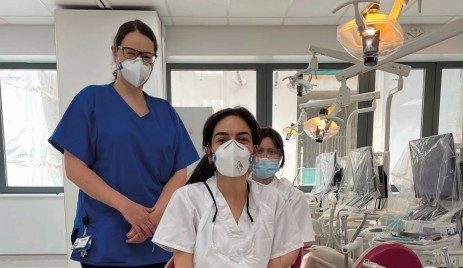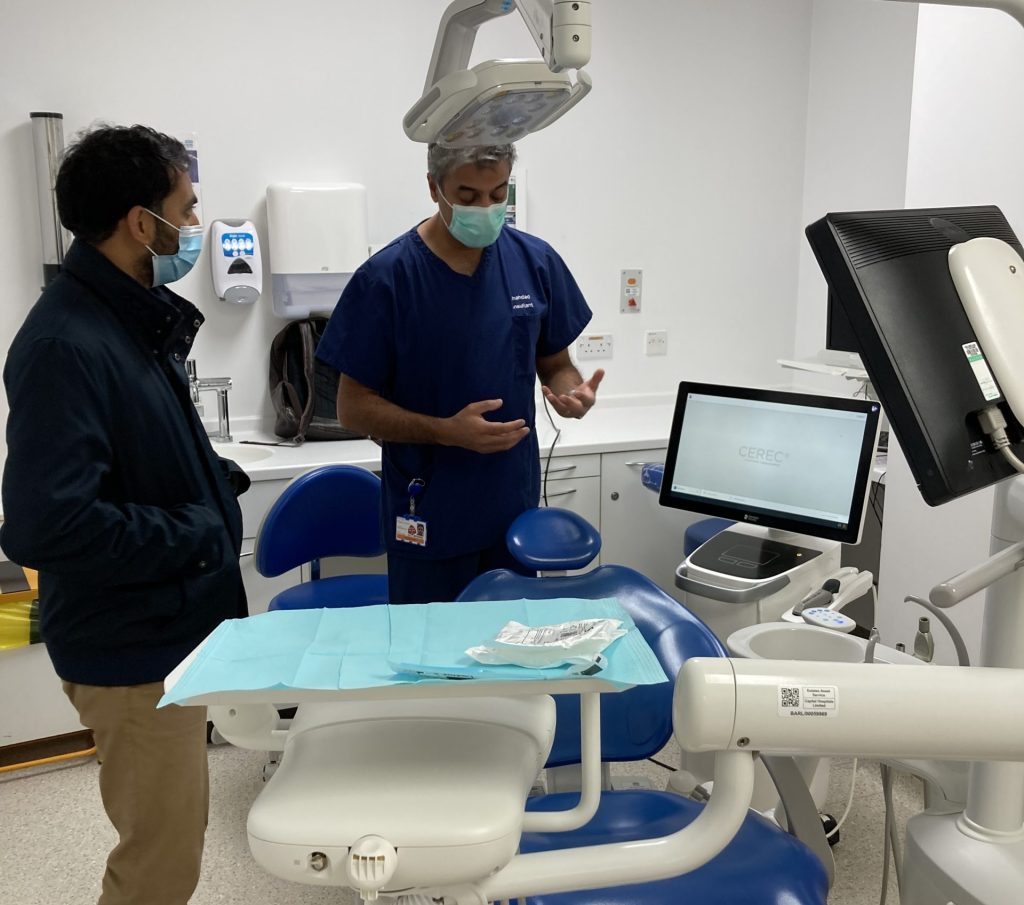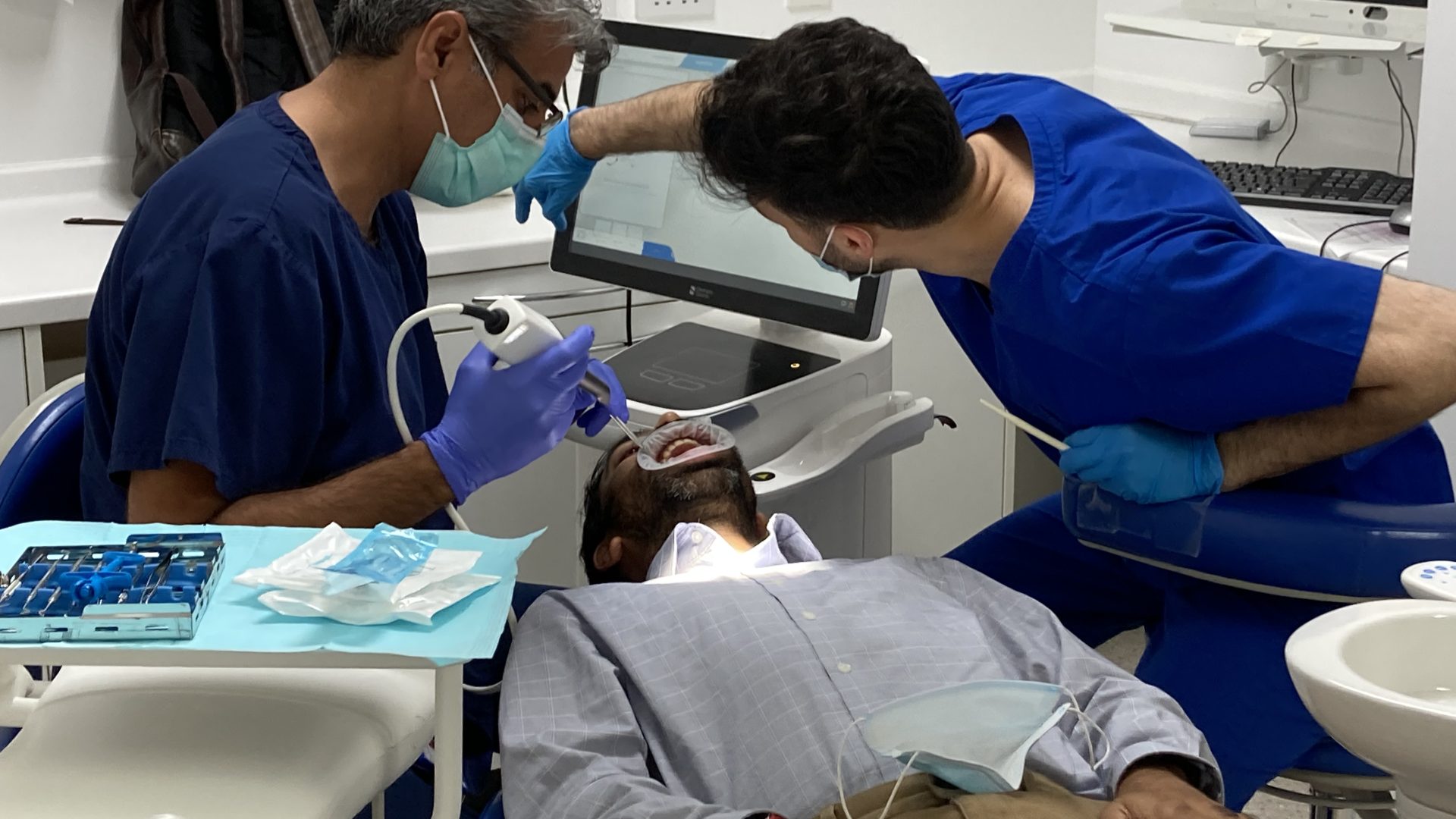Improved learning experience for students
Part of our funding will be used to improve the learning experience for students at the Institute of Dentistry (Faculty of Medicine and Dentistry, Queen Mary University of London), the second largest in the capital, by introducing advanced virtual reality simulators.
These advanced simulators, deploying the latest haptic technology used in flight simulators, will allow undergraduate and postgraduate students to safely, realistically, and repeatedly rehearse clinical dental procedures, before undertaking these on actual patients.
Students using the haptic training equipment feel more competent in undertaking a range of simulated dental interventions, as dental student, Katherine, says, “It’s a valuable experience to build one’s skills before working on real teeth and we learn to apply the right amount of pressure with the drill for different parts of the tooth.”

Students at Institute of Dentistry
The future of dental care
The grant has also funded new 3D oral scanners to replace the old dental equipment. Using these new oral scanners, procedures can be done with a lot more accuracy. Currently, impressions or plastic moulds of the mouth are made for procedures like implants, crowns, veneers or bridges. With the new digital scanning technology 3-D images of a patient’s mouth will replace the need for mould-casting.
Replacing plastic moulds with digital scans of the mouth means that, in most cases, a patient will only need to do this once. Plastic moulds can be broken or lost, meaning a patient would need to have a repeat mould taken if something changes in their teeth. The digital scan is stored in a file that can’t be lost in the same way a physical mould can.

Professor Shakeel Shahdad with a patient
The benefits to patients
This digital transformation will make the dental hospital the first in the UK to fully integrate oral and general health records for routine patient management.
The new scans mean the procedure will be a lot more comfortable and efficient for patients. Patients will further benefit through better continuity of care since all patient information will be accessible to everyone who is providing dental care to a patient. Also, other hospital clinicians will have a bigger picture of a patient’s overall health.
Bringing in an advanced digital record-keeping system will replace the current need for storing paper and mould-cast records, resulting in a significant cost-saving for the hospital.
“This considerable investment from Barts Charity is an exciting and a watershed moment for The Royal London Dental Hospital. We are undoubtedly spearheading the digital revolution in the UK. The benefits for all our stakeholders – patients, staff, and students are enormous and will transform the way we practice and teach dentistry."Professor Shakeel Shahdad, Clinical Lead for Restorative Dentistry, The Royal London Dental Hospital
Proud to support
Fiona Miller Smith, Barts Charity CEO, added: “This is the largest investment in dental technology that we have made to date. We are delighted to be supporting this important digital initiative which will make such a difference to the oral health of the people of East London that we are so proud to serve.”


